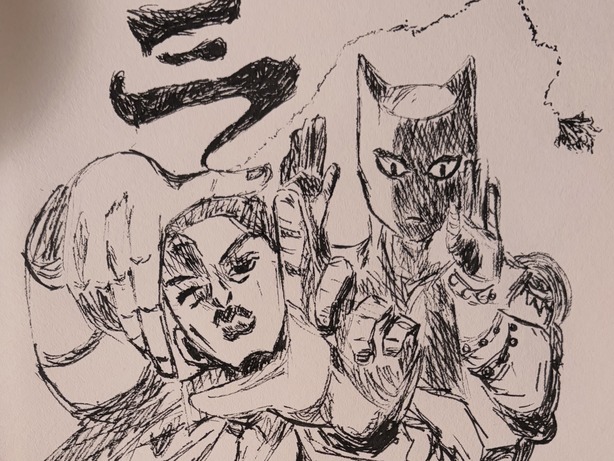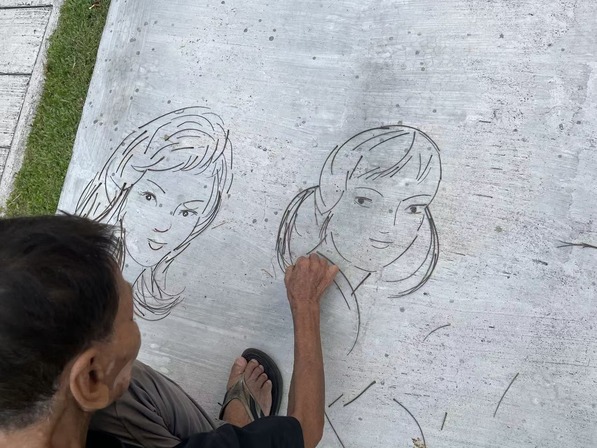Dinner
“That bungled goodbye hurts me to this day.” —Life of Pi
SoME2
I actually placed in the top 100 in SoME2, which is very surprising (top 22 non-video entries). I was so shocked that I started making “woahAH” noises in the Rhode Island hotel room that my family was staying in during Labor Day weekend.
After evaluating my post, I noticed a massive lack of visuals, which probably makes it very bland to read. If I had more time, I would have added some nice visuals, especially an animation of two growing vectors.
College Applications
This year, Caltech has decided to go to restrictive early action (REA), which means a person can exclusively EA to Caltech.
Before, I would have just applied early to both Caltech and MIT like thousands or millions of people do, but now I have to make a choice.
Marginal Thinking
Considering what I learned in economics class, I should weigh the opportunity costs of both. We haven’t really learned this, but I really think that the only thing that matters is the opportunity cost differences. For example, I don’t lose a high-quality education when I pick one over the other, but there might be like a small difference in things like the weather and the student lifestyle.
However, that’s assuming I actually had my pick. I also have to consider the probabilities of the events occurring, then multiply the costs individually, then subtract. Assuming my chances are pretty low, that means the difference approaches zero.
Club Revolution
Since I’ve taken over as math team captain, I have made posters, a website, a practice packet with organized notes and problem types, and a YouTube channel.
The first video went up today, so feel free to watch it below. I probably explained too many elementary steps, which made the video 20 minutes long, but at least it is decently clear.
I get the sense that most of the time, clubs fail because the leaders don’t do enough work in terms of engagement. In the case of math team, the captains are always seniors who have no time because they are worrying about college applications. However, I did put aside a few nights to do some work and create an infrastructure in which math team can actually ease access and increase interaction.
Math Team’s Biggest Problem
In clubs like science olympiad, debate, journalism, and chess, basically everyone can compete/contribute to some major event, like a publication or a competition. However, in math team, only 6 people can be on the A-team whose points count toward the school during competitions. There is the option of going to the competition on the B-team but many people see no point in participating if their points do not count.
I just emailed the organizers to include a secondary ranking of the mean points of the B-team at each school. This is a decent solution to the problem of leaving people out, but it does have some problems like maybe creating more work, but not the proportional results in terms of increasing engagement, since B-team is still B-team.
For schools that take the competition very seriously, it would not change anything about the engagement, since I’m pretty sure they work based on a love of winning. But for other schools, it would just be the love of learning and improving, which is harder to obtain.
Massive Mistakes
I have been teaching one AP Computer Science Principles for two days now as an AT (assistant teacher, different from the reverse), and he doesn’t really understand much about programming, which is why I’m there to teach him the principles.
-
Doesn’t know the syntax. This is an easy fix: just type the basic functions and statements repeatedly every day, kind of like a manual copy-paste.
-
Lacks object permanence, which means he doesn’t know that something will be in the same place even if he can’t see it. In programming, this basically means he doesn’t know that a variable will change values during the process of the code running. For example, thinking that the list is empty when it actually has items inside of it. I had this issue in the beginning as well, so I totally understand the feeling, I just forgot until I taught him.
-
Lacks confidence in his responses. This is natural in the beginning when I am teaching people because I will ask a question and they will sometimes respond, to which I will ask, “Are you sure?” Then, he deletes his code and assumes that he’s wrong.
Inside my head:
“WHY ARE YOU PRESSING BACKSPACE???? STOPPPPPP!!!”
This is the problem with current education; teachers have used “Are you sure?” as a method of telling students they are wrong rather than using it as a probe for the thinking of the student. Sure it’s faster to just correct students on the spot when they are wrong and praise them when they are right, but is that really the most efficient way to teach?
We are trying to teach a human how to think critically and logically, not a dog how to roll. So, wouldn’t it make sense that the carrot and stick approach simply isn’t enough?
If you’ve ever wondered why Shaolin monks are so flexible, it’s because the teacher makes the student do a split and gets two people to take a seat on that poor sucker. Even the toughest men will crack under that type of pain. Our approach to learning should be as mentally agonizing as that, but also not so forceful.
Grandfather
As for the outcome, my student should be able to catch his own fish. If it slips out of his hand, then he will just need to try again.
My grandfather was a quiet person. When asked for favors, his mentality, like mine, was always to teach someone how to do it, which often irritated them. Maybe he did not like to be bothered, maybe he was shy, but I know he enjoyed teaching people. As a child who knew a lot of origami, other kids would often ask me to make them something, but seeing someone else take on a crane, plane, or frog always made me enjoy every crease of mine even more.
Eureka!
At least I was able to experience his “Eureka!” today. These moments are beautiful despite the difficulty of the problem from the perspective of a teacher. I asked him to think deeply about how he can refer to an item of a list in another list. I could hear the cogs turning, gears grinding in his head. He stared at a wall as I waited… He briefly opened his mouth and pointed up but lost it… He muttered the answer but dropped his arm… “Eee…”, he creaked like an old door and squinted.
The gears ground to a stop. Behind those doors were a pair of eyeballs I wasn’t ready to see.
“I don’t know.”
Ah. Is this a horror movie, tragedy, or a comedy?
Picking Apples
My mother told me not to pick apples from the school courtyard but I don’t really understand why I shouldn’t. I mean, no one is gonna eat them other than the birds.
Bad Plays
I am not perfect in attempting an opposite of the current norm either: I sometimes forget to change the tone of the word “sure” in a way that suggests I want him to think deeply + explain. However, I think that he is starting to understand what I want from him when I ask a question.
One terrible mistake I made, or I guess several, was occasionally telling him “Yes” when he asked, “Is this right?” The big problem with this is that he will go into relapse if I give that type of simple reward.
Like an irresponsible accomplice after a heist, I have to tell him the truth: Hey dude. Yeah? Remember, you did everything, I didn’t do anything, that was all you.
That one time I taught my chemistry class
That would have been a great note to end on, but I just remembered this next story.
A lot of students know me for teaching their class, which is really funny because I actually have heard some of their names, but I just don’t know what they look like. For example, a person from a club or a Discord server, or a sibling of a classmate.
But, when my chemistry teacher was out near the end of the last year, I decided that I would teach the class the material on the organic chemistry homework that he was originally going to go over.
It was basically just using the compound names to draw the structure and the inverse of that. It was actually one of my best lessons ever, even though I had never taught chemistry before and I got a lot of the details wrong. I remember making some pretty good jokes and great analogies. I drew this one chemical that kind of looked like a runner, and so I explained the process of naming it through anatomy: “So, we know that both of his arms and his legs are the same length, but his legs are a bit longer, so the longest path should go from shoe to shoe!”
I would have added in another interesting fun fact if I could travel back in time: “What is the longest bone in the body? The femur. I got this wrong on my 7th grade biology test, saying that the answer is the tibia and I’ve been holding that grudge ever since.” Obviously, that is a joke, but I’ve remembered the fact distinctly.
By the way, I remembered this story because my dad went to back to school night and the teacher said that one of his students (probably a summer chemistry class assistant) told him that it was one of the best lessons ever.
Strangers
There are some people I’ve interacted with as strangers who I then became acquainted with after a long time.
I was the founder of my old school’s SciAcademy club, which has students explain science topics to other students in all grades below their own. Last year, someone in the group chat suggested some potential geography topics to discuss, and “good topics” was my response, likely just checking the group chat out of boredom. This month, I actually became friends with that student.
Last year at lunch, I decided to sit down next to a new student and we talked about TF2. Today, I was teaching AP CSA, and this student told me that I actually talked to him a year ago at lunch, which is just crazy.






Leave a comment